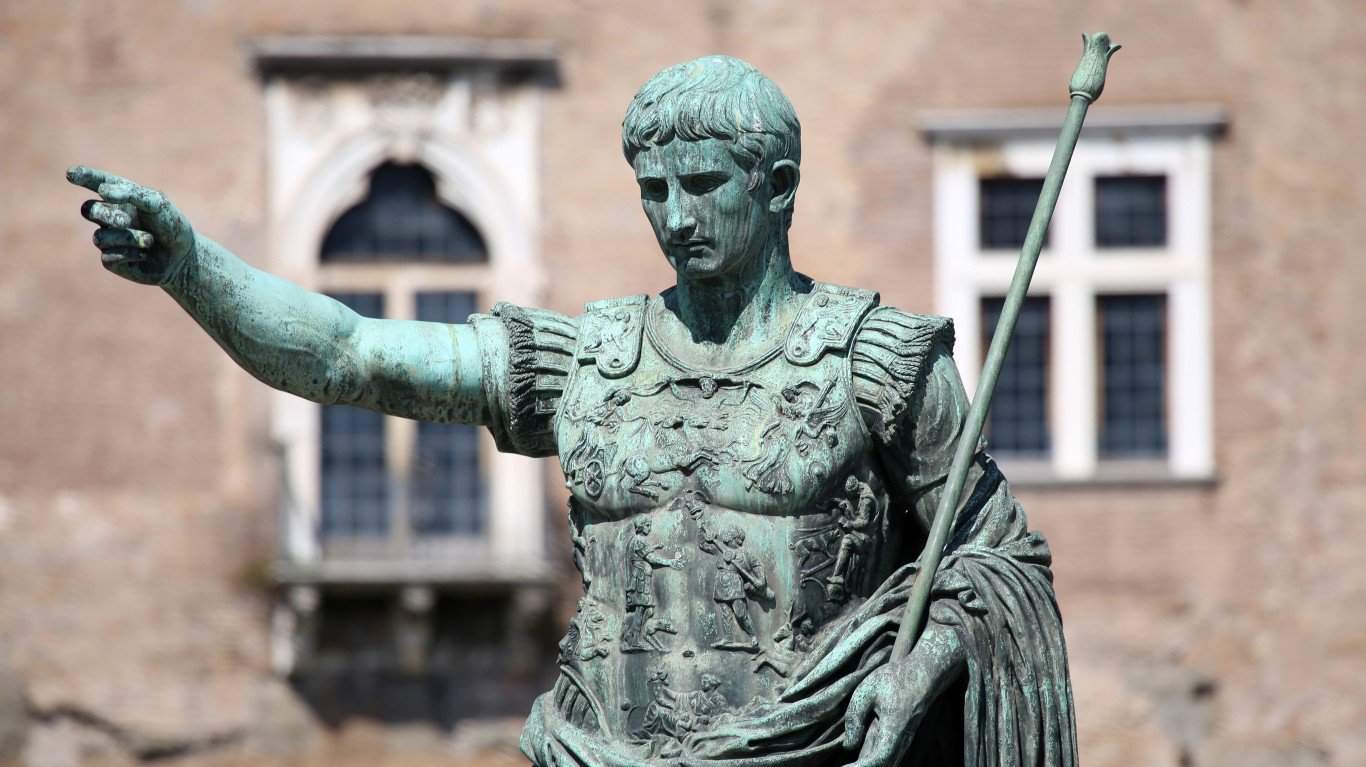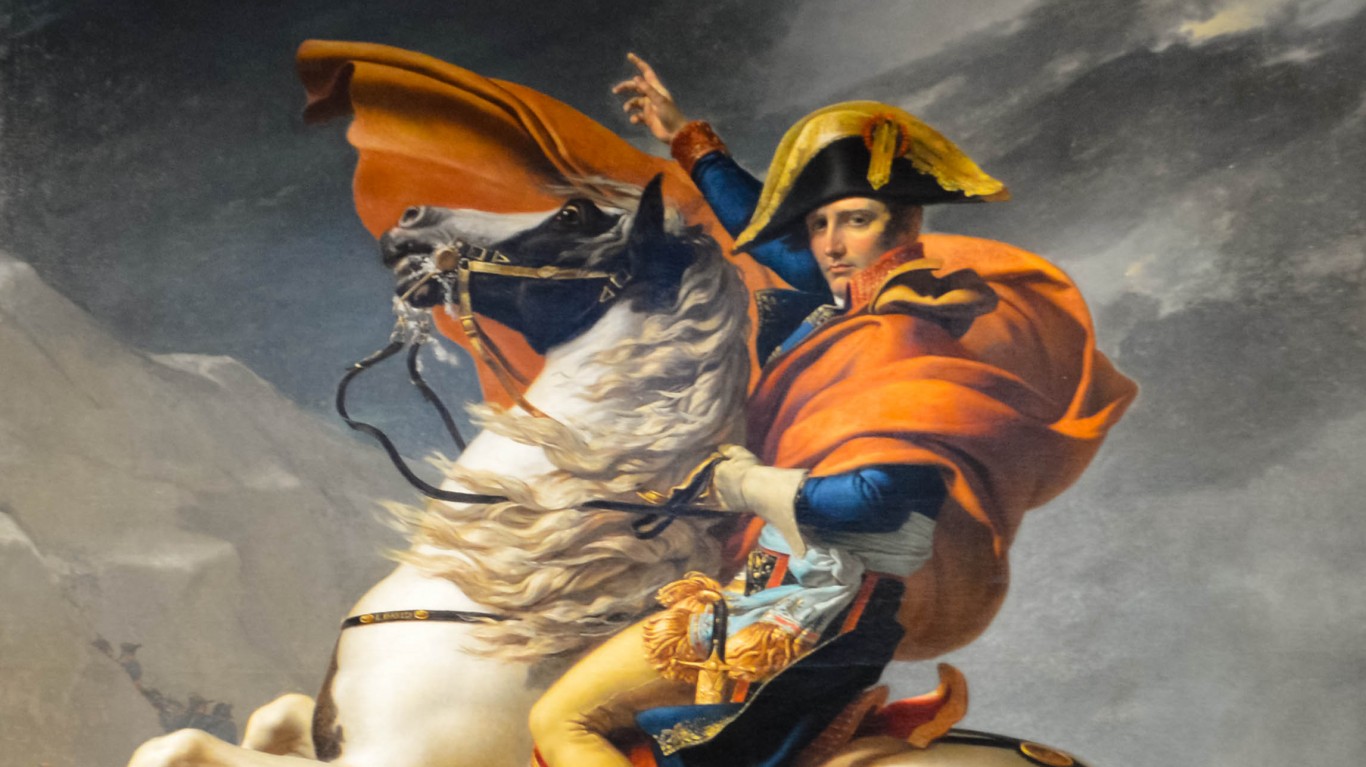Nowadays, wars are fought in a detached, almost proxy-like style that sees little movement or gain for either side. But back in the ancient world, the names of certain conquerors struck fear in people due to their iron wills, unassailable military power, and relentless brutality when acquiring territory.
As such, let’s meet 10 of the greatest conquerors of all time. If you’re looking for rulers known for their particular brutality, meet the most ruthless leaders of all time.)
To compile a list of the 10 greatest conquerors of all time, 24/7 Tempo consulted a range of military and history sources including Military History Now and National Geographic. Next, we selected the conquerors with the widest range of influence and most memorable legacies. After that, we consulted sites like Biography and Britannica for specific biographical information.
Genghis Khan

- Estimated land captured: 4,860,000 square miles
There is no doubt that Genghis Khan’s reputation proceeds him. Born with the name Temüjin and the son of a Mongolian chieftain, he survived the rough and tumble high steppe by killing his half-brother to secure his position of power. From there, he slowly amassed followers until he became the founder and the first Khan of the Mongol Empire.
Though he spent most of his life uniting the warring Mongolian factions, his brutal onslaughts on nearby China and Central Asia account for his legacy. This saw him conquer various cities such as Zhongdu in what is now China as well as toppling various states such as the Khwarazmian Empire. Though he died amidst his campaigns, the great Khan would spawn several sons, each of whom would lead further expeditions west, eventually resulting in one of the greatest empires in human history.
Cyrus the Great

- Estimated land captured: 2,090,000 square miles
Before the Persian Empire existed, it was a state within the empire of Medes. All that changed with Cyrus the Great, who freed Persia from the Median’s clutches, staged a revolution and captured its capital at Ecbatana. From there, Cyrus expanded the Persian Empire from Greece into India, transforming how empires worked in the process.
Unlike more bloodthirsty rules, Cyrus the Great was a true statesman, diplomat, and human rights advocate. In 593 BCE, he issued the Edict of Restoration which ended the Babylonian captivity of Jewish people and encouraged them to return to the Kingdom of Judah. Beyond that, Cyrus established a system of government via satraps that spread his influence far and wide. So much so, that the ancient Greek elite took to fashioning themselves in styles of Persian dress and customs.
Alexander the Great
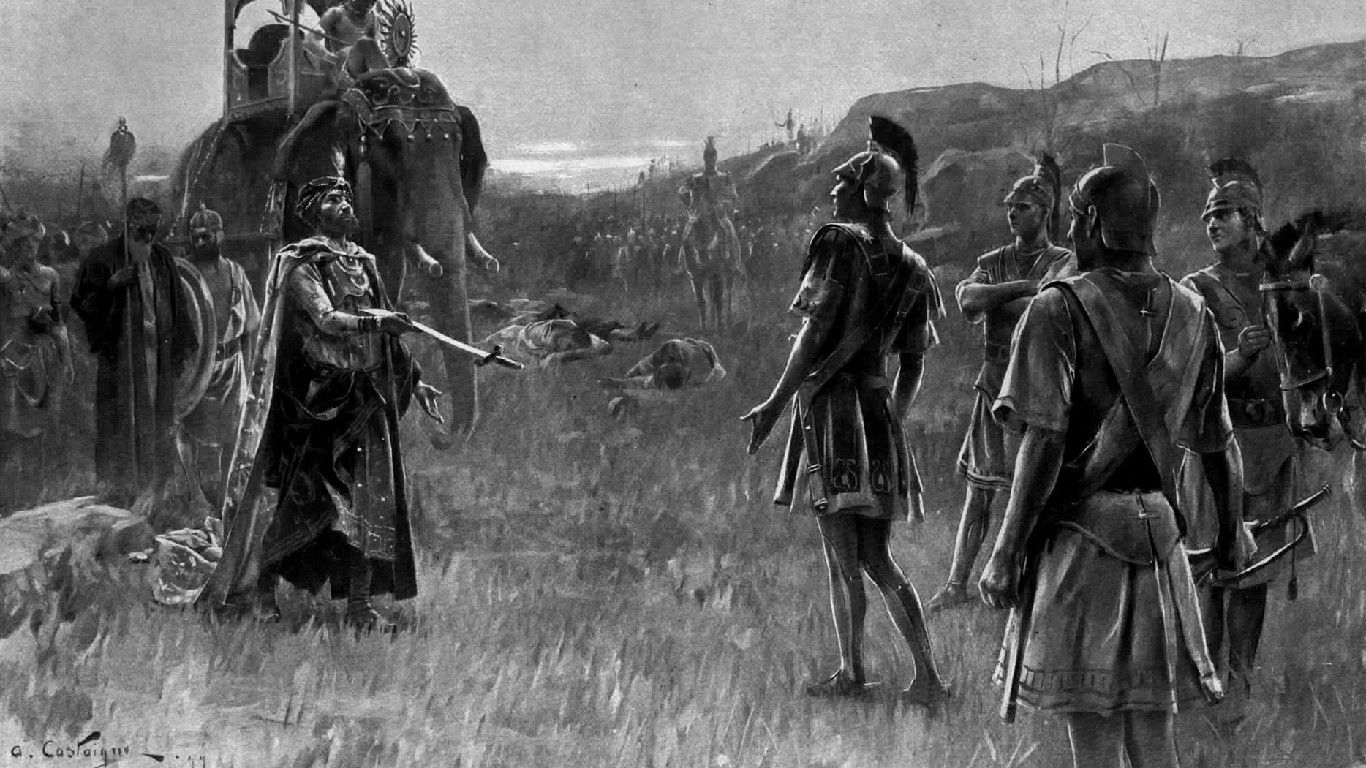
- Estimated land captured: 2,180,000 square miles
Another one of the greatest conquerors of all time was Alexander the Great. The son of King Philip of Macedon, Alexander was raised and educated like a future conqueror; he was tutored by the philosopher Aristotle, along with the men who would become his generals. After his father died under curious circumstances in 336 BC, the 20-year-old Alexander took the throne and continued his father’s military campaigns into Greece and Central Asia.
What followed was one of the greatest campaigns in military history. Alexander and his armies tore through the known world, making powerful Greek city-states submit as well as conquering the Achaemenid Persian Empire. He made it as far as India before he died, leaving no heirs and a swath of land that his generals would fight over and rule for the next couple of centuries. (For other rulers, discover the last rules of 22 powerful empires.)
Attila the Hun
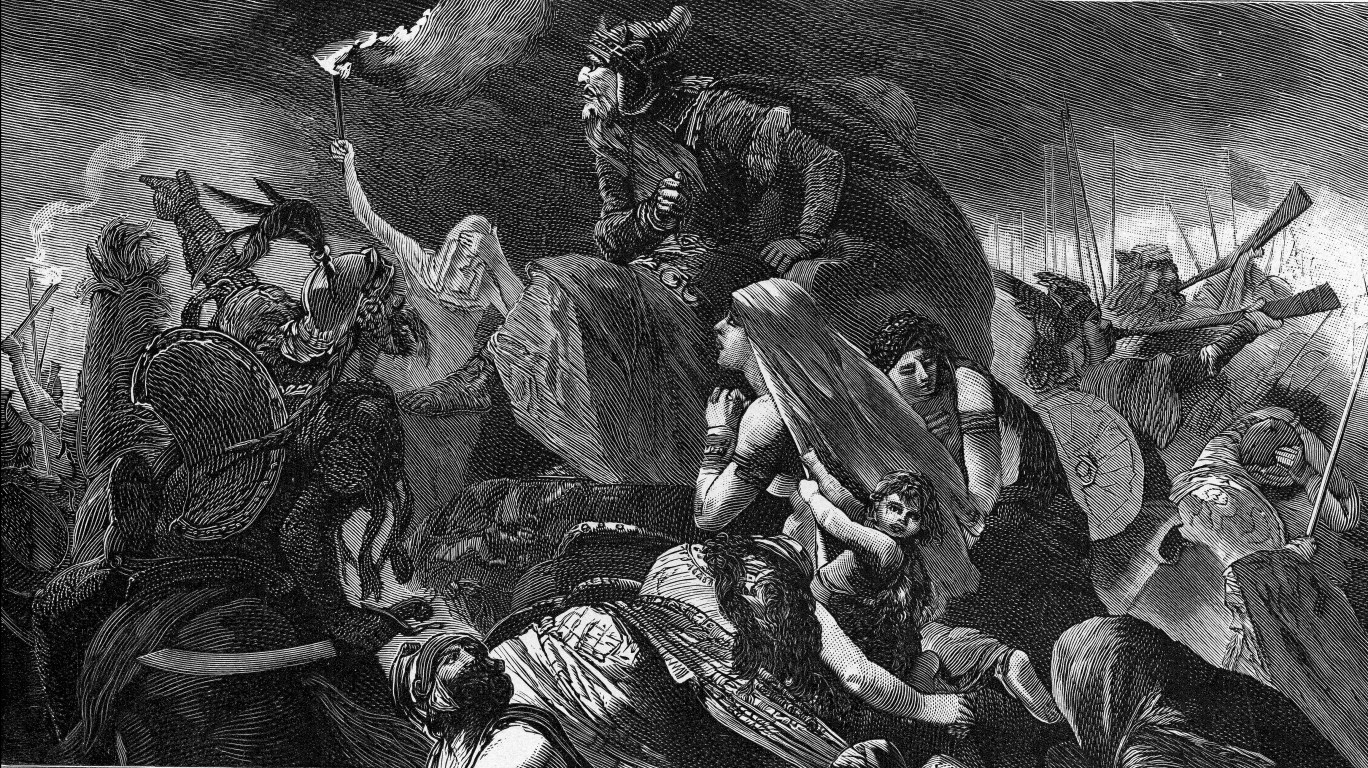
- Estimated land captured: 1,450,000 square miles
Another one of the greatest conquerors of all time was Attila the Hun. Born into the ruling family of the Hun empire, which controlled the central Asian area between Rome and Russia, Attila came to power in tandem with his brother Bleda. After his brother’s death, Attila scorched earth, striking fear in the Roman elite with his relentless incursions into their territory.
During his lifetime, Attila crossed the Danube River twice, plundering the Balkans territory before leading a successful invasion of the Eastern Roman Empire. This encouraged further campaigns into Roman land, including an attempted conquering of Roman Gaul and even as far as Northern Italy. Though he never reached his final goal of conquering Rome, Attila the Hun goes down in history as one of the most feared conquerors ever.
Napoleon Bonaparte
- Estimated land captured: 720,000 square miles
Another one of the greatest conquerors of all time, and perhaps the most recent, was Napoleon Bonaparte. Born on the Island of Corsica to a family descended from Italian nobility, his support of the burgeoning French Revolution in 1789 helped him rise through the ranks of the French army and due to decisive victories, made him a national hero. Using this clout, he engineered a coup and became the First Consul of the Republic.
From there, Napoleon expanded his powers and crowned himself the Emperor of France. After that, he waged campaigns on multiple fronts, holding back the English, defeating the Russians, and effectively ending the Holy Roman Empire. Though much of his legacy remains controversial, Napoleon reformed much of French society. During his time in power, he abolished feudalism, expanded religious tolerance, and created the Napoleonic code which served as a template for many Western legal systems since.
Tamerlane
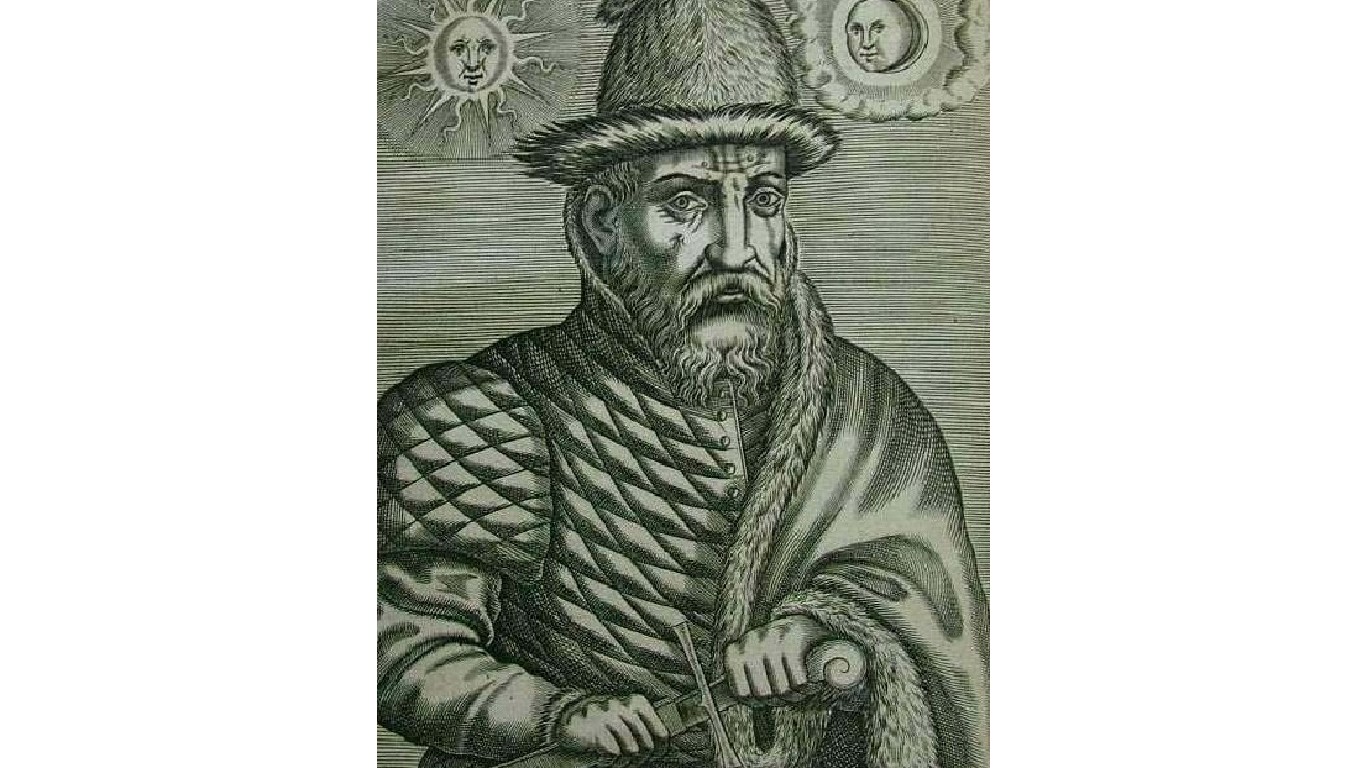
- Estimated land captured: 2,145,000 square miles
Another one of the greatest conquerors of all time was Tamerlane (also known as Timur). Born in modern-day Uzbekistan, Tamerlane was the founder of the Timurid Empire and the last great conqueror of the Eurasian Steppe. During his lifetime, Tamerlane would wage successful campaigns against Egypt, the Ottoman Empire, and even the Delhi Sultanate of India.
Using Genghis Khan’s ruling as a template, Tamerlane spread Islam far and wide in the Middle Ages (he even called himself the “Sword of Islam”). An accomplished conqueror who wasn’t above using brutal means to reach victory, Tamerlane is believed to be responsible for at least 17 million deaths, which is thought to account for five percent of the entire world population at the time.
Charlemagne
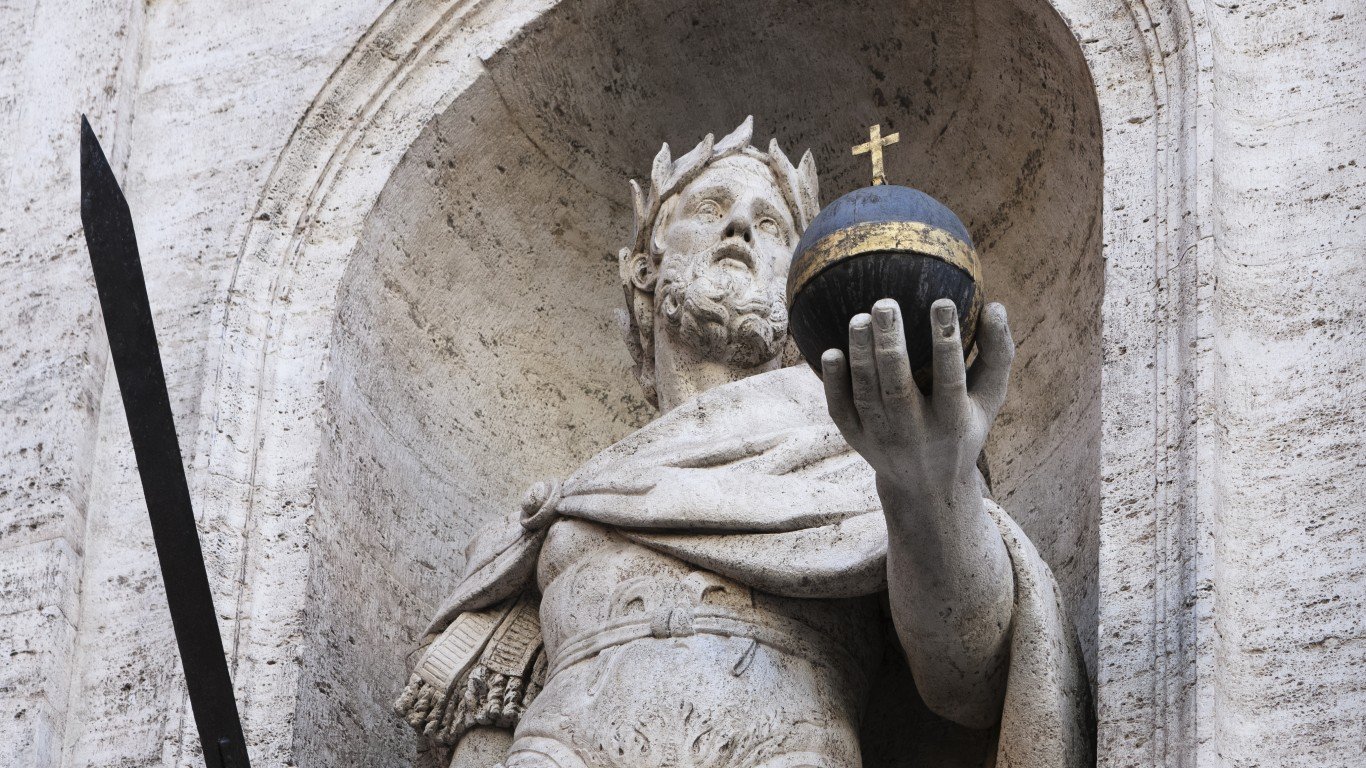
- Estimated land captured: 460,000 square miles
The name Charlemagne gives a sense of might yet regal grace. That’s for good reason too, as Charlemagne the Great was a noble child who eventually became Emperor. Born into the ruling family of the Frankish Empire, Charlemagne rose to power in 768. From there, he would eventually unite most of Western and Central Europe under his rule.
After leading monumentally successful military campaigns and being crowned emperor by Pope Leo III, Charlemagne instituted major reforms in law, education, and religion. Considered to be the “Father of Europe,” Charlemagne’s might and institution of sweeping changes shaped the European continent for centuries to come.
Julius Caesar
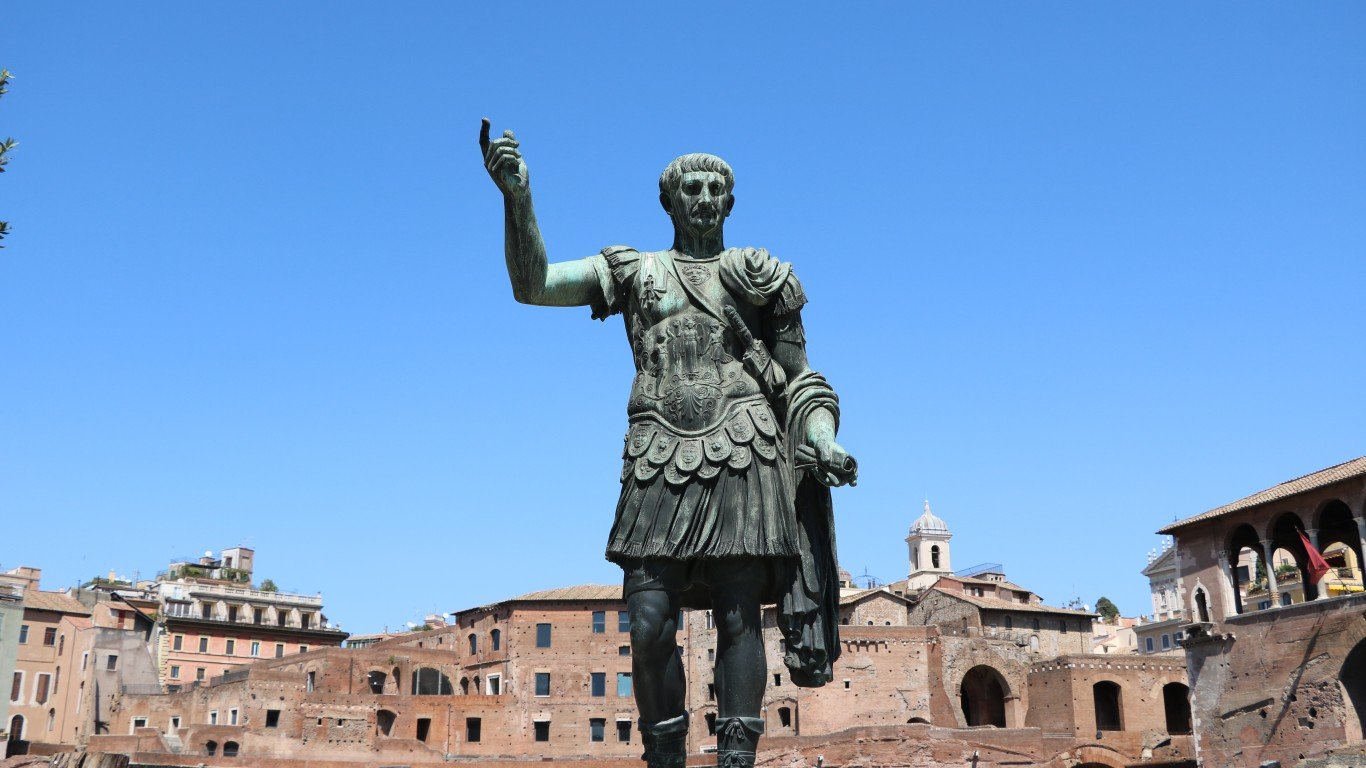
- Estimated land captured: 2 million square miles
Another one of the greatest conquerors of all time was Julius Caesar. He started as a Roman general and statesman, ruling through a triumvirate of power with fellow politicians Crassus and Pompey. After that, Caesar grew in power by leading a series of successful conquests called the Gallic Wars. Fearing his growing might, the Roman senate attempted to shut down Caesar but he defied them.
This led to a civil war between Caesar’s forces and Pompey’s forces, though Caesar was eventually victorious. From there, he crowned himself dictator of the Roman Empire, instituting a series of reforms including the creation of the Julian Calendar and the granting of citizenship to residents of far-flung Roman vassal states. Though he was assassinated only a few short years later, Caesar’s bold conquests helped in dissolving the Roman Republic and causing the subsequent rise of the Roman Empire. (For more Roman history, discover the 25 longest-reigning Roman Emperors.)
Hannibal
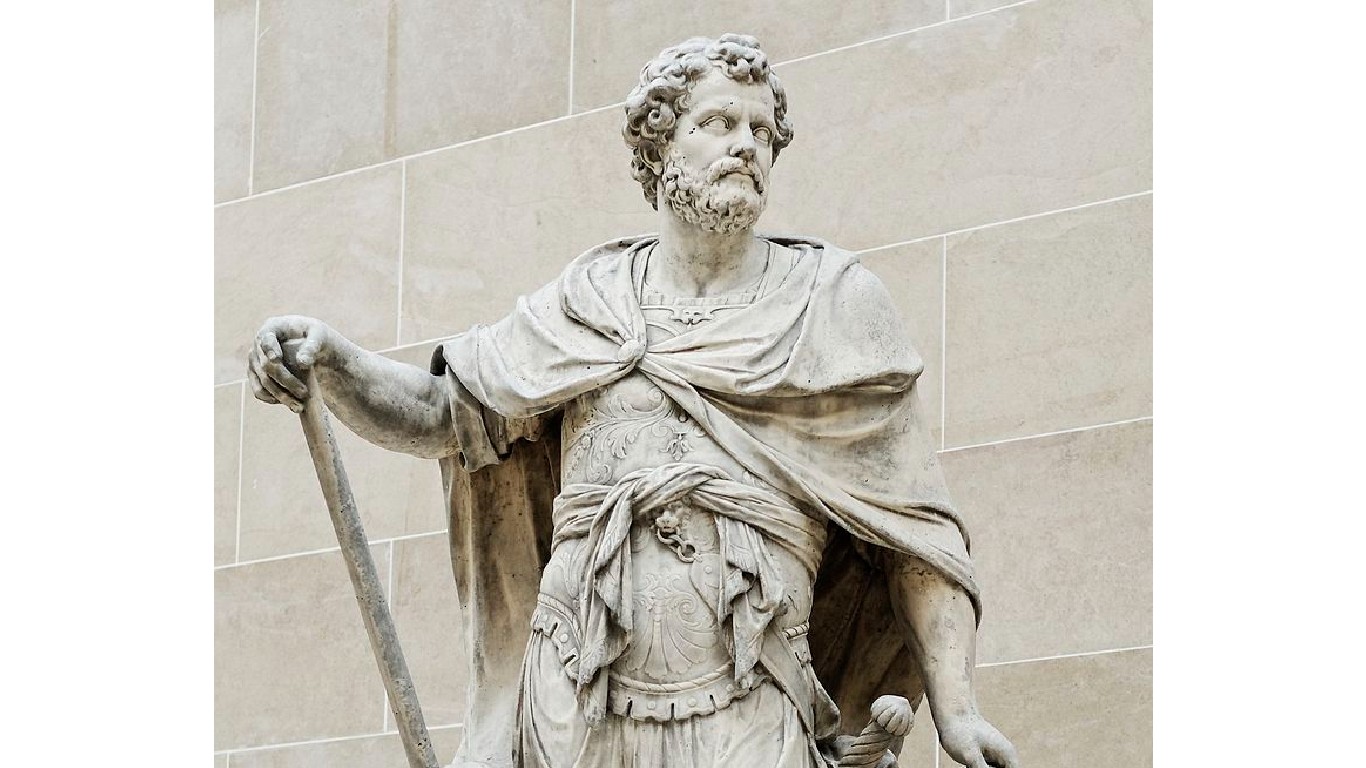
- Estimated land captured: 150,000 square miles
Another one of the greatest conquerors of all time was Hannibal. Born to the great Carthaginian general Hamilcar Barca, Hannibal came of age during a time of great political and military tension. Hell-bent on not letting the Carthaginian Empire be overrun by the burgeoning Roman Empire, Hannibal made a series of incursions into Roman territory.
Sparking the Second Punic War, Hannibal staged a series of decisive victories in territories like Hispania before famously crossing the Alps into Italy on the back of a war elephant. From there, he won a series of battles and occupied much of Italy for over a decade. The Romans finally defeated him in 202 BC. After that, Hannibal attempted a series of reforms in Carthage before his exile and eventually suicide by poisoning.
Thutmose
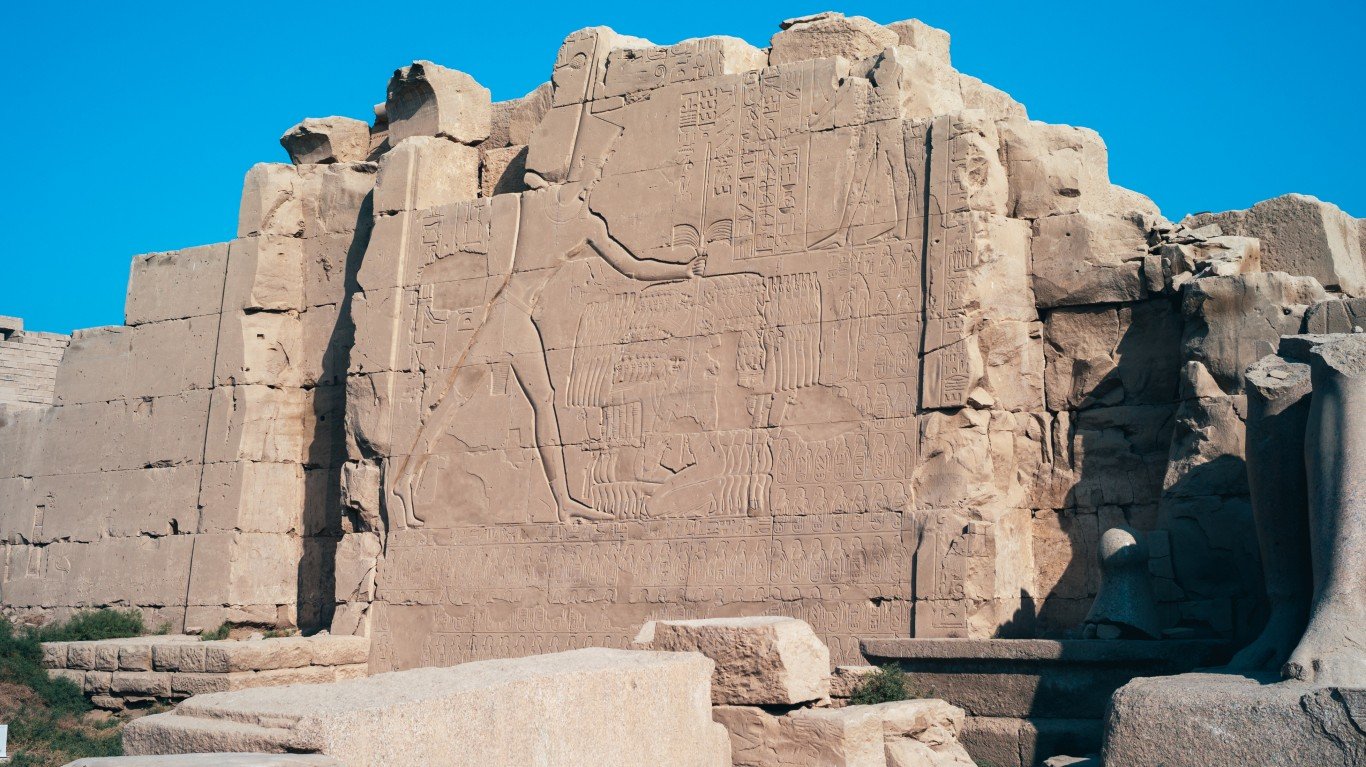
- Estimated land captured: 1 million square miles
Perhaps the most ancient conqueror on this list is Thutmose III of Egypt. The sixth pharaoh of the 18th Egyptian Dynasty, Thutmose rose to power in 1479 BC at the young age of two years old. Though he ruled in tandem with his stepmother and aunt, once he came of age, Thutmose became known as a great conqueror.
During his rule, Thutmose III conducted no less than 17 victorious campaigns, expanding the Egyptian Empire to its largest size in history. Recognized by both ancient and modern historians as something of a military genius, Thutmose also created the first navy in the Ancient World. Stories of his genius and power come down to us through inscriptions on Ancient Egyptian monuments. (For other famous warriors like Thutmose III, discover 30 legendary warriors throughout history.)
